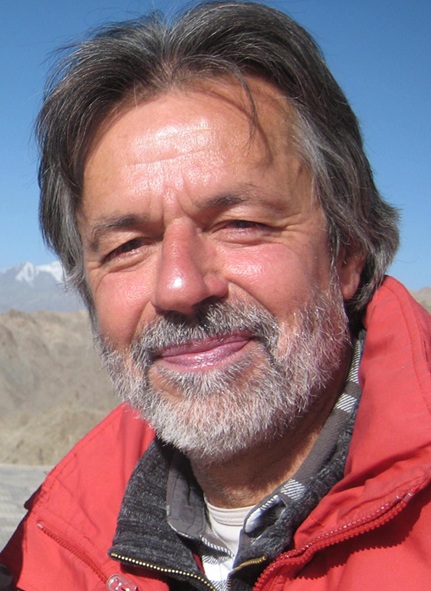Portrait of an alumnus: Walter Klemm
 Walter Klemm completed his doctorate at the Institute of Hydraulic and Cultural Engineering at the University of Karlsruhe. His professional career has taken him through various stages and has taken him to over 40 countries worldwide. After founding and managing an engineering office for water management and resource protection for eleven years, he worked for the Food and Agriculture Organization of the United Nations and supervised projects in northern Iraq and Afghanistan. After his retirement, he worked as a consultant for the World Bank and the Gesellschaft für Internationale Zusammenarbeit (GIZ), among others.
Walter Klemm completed his doctorate at the Institute of Hydraulic and Cultural Engineering at the University of Karlsruhe. His professional career has taken him through various stages and has taken him to over 40 countries worldwide. After founding and managing an engineering office for water management and resource protection for eleven years, he worked for the Food and Agriculture Organization of the United Nations and supervised projects in northern Iraq and Afghanistan. After his retirement, he worked as a consultant for the World Bank and the Gesellschaft für Internationale Zusammenarbeit (GIZ), among others.
What valuable experiences and insights from your time at KIT still influence you today?
I was employed as a research assistant at the Institute of Hydraulic and Cultural Engineering from 1983 to 1989. As far as I remember, I was the first doctoral student who had not studied at the department. I certainly had the open-minded and tolerant nature of my professor Peter Larsen (himself a "career changer") to thank for this, who gave me a great deal of freedom in planning lectures on cultural engineering (= irrigation, drainage and erosion control) and actively supported my research projects.
At that time, the image of the hydraulic engineer (a river straightener, pure technician, etc.) was questioned and changed by (relatively) young professors and scientific staff to the effect that socio-political issues (e.g. use of nuclear power) and the ecological orientation in specialist areas such as hydraulic engineering and water management played an increasingly important role in engineering education at the Technical University of Karlsruhe. This development underlines the fact that the preservation of teaching and research excellence is only possible through courageous and determined changes to existing conditions. Even if I cannot make a direct comparison with other German universities at that time, I am certain that the Technical University of Karlsruhe was at the forefront of positive changes in teaching and research and in (scientific) staff responsibility.
What added value do you derive from being a member of the alumni network?
The added value comes mainly from the provision of information. What is happening at KIT? Are there any interesting research projects? Etc. Unfortunately, due to my absence from Karlsruhe, I have not yet taken part in any events organized by the alumni network, which I regret, as there was and still is a wide range of interesting topics.
What is your vision for KIT?
My suggestions for possible, desirable future developments at KIT are:
- Teaching (in general): After a short (1-2 semesters) teaching of basics in lecture halls, only project-based work in groups at tables in seminar rooms. This promotes self-responsible and result-oriented action as well as creative thinking and teamwork.
- Teaching (specific): I can only include teaching areas here that I have dealt with myself in the past.
Climate: Of course it is important to develop climate models that are as realistic as possible and to make predictions. However, in my opinion, it is even more important to develop countermeasures for the anticipated climate changes that give us the opportunity to live (or survive) with the predictions that are likely to come true.
Resource protection: The protection of air, water, soil, flora and fauna (biodiversity) should be the subject of all knowledge transfer in all subjects, i.e. an integral part of socio-political action in the application of technical solutions in everyday life.
Erosion protection, especially in the Alpine region: The protection of settlement areas in the Alpine region should be given much more priority in order to preserve Alpine culture and traditions, which are threatened by the shifting of the permafrost boundary.
Research: There are certainly special and promising research activities in the above-mentioned teaching fields of climate, resource protection and (alpine) erosion control. In my opinion, however, the most important research topic that benefits all the fields mentioned is hydrogen. The efforts in hydrogen research remind me of the use of research funds for solar and nuclear energy in the seventies and eighties: Over 90% of the funds went into nuclear energy research, less than 10% into solar energy research. A development of future energy use that was completely unrecognized at the time!
I would like to suggest that, parallel to the diverse and - rightly - technological orientation of the KIT, priority be given to hydrogen research and that the importance of socio-political commitment to an ecological and sustainable way of life be integrated into technically oriented specialist areas.
